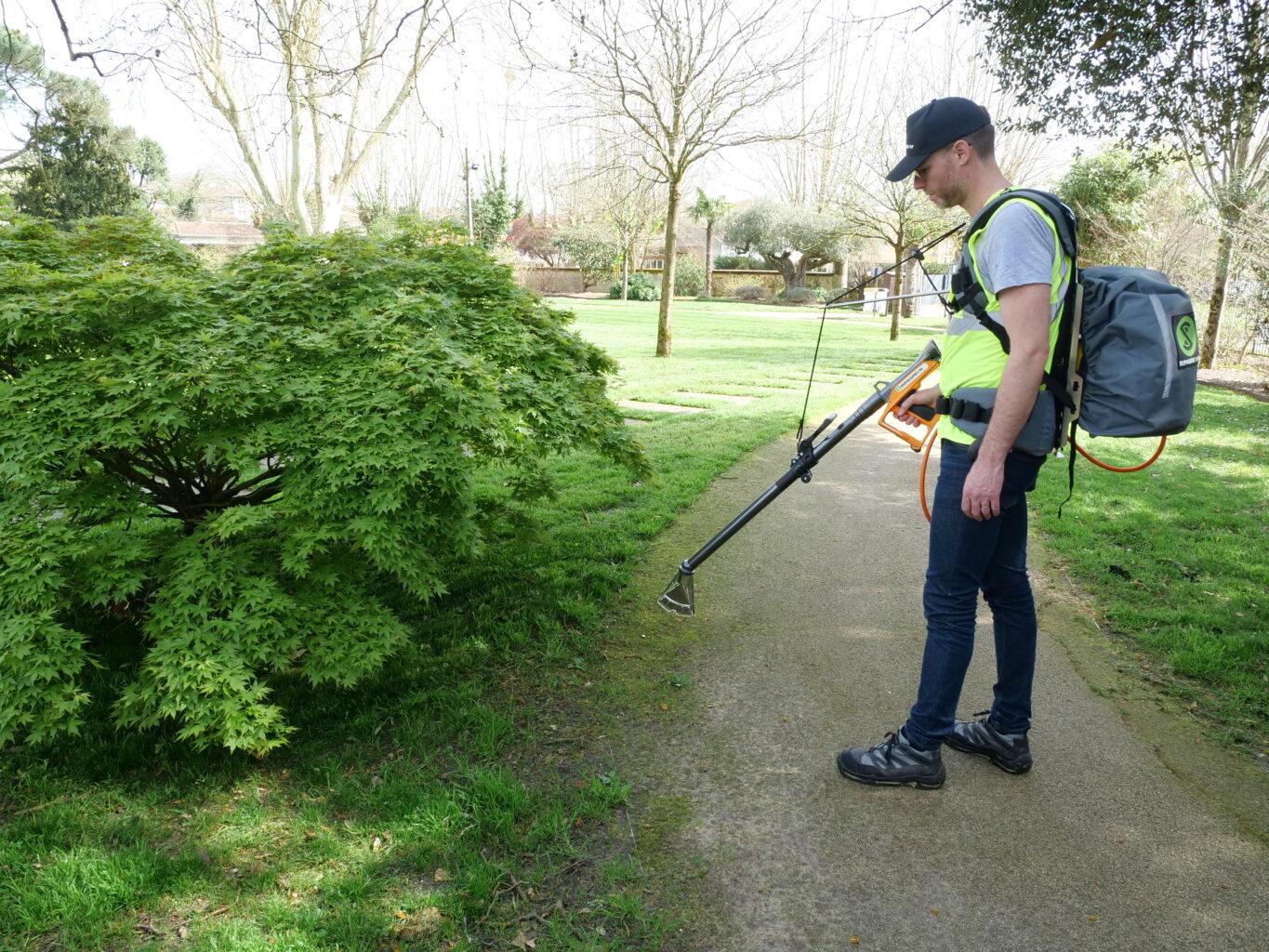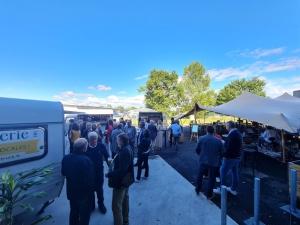
Our Ripagreen® research and development teams have studied all the specifications of a person who would like to weed a fairly large area, quickly and above all to be able […]


In the ongoing search for sustainable energy alternatives, biogas and biopropane are emerging as key pillars in the transition to a greener economy. Ripagreen®, a leading innovator in thermal weed control, is highlighting these solutions by including the possibility of using biogas and biopropane cylinders.
Biopropane, a renewable form of propane, represents a significant advance in the field of alternative fuels. Unlike conventional propane, which comes from fossil sources, biopropane is produced from renewable organic materials such as agricultural waste, forestry residues or vegetable oils. As such, biopropane offers a more sustainable and environmentally friendly solution, while retaining the practical and economic advantages of traditional propane.
Biogas, produced by the anaerobic fermentation of organic matter, offers numerous environmental benefits. It is a renewable source of energy, helping to reduce dependence on fossil fuels and greenhouse gas emissions. What’s more, biogas production makes the most of organic waste, contributing to sustainable waste management. However, biogas also has its drawbacks, particularly in terms of the high initial costs of setting up production facilities and the dependence on locally available organic resources. Care must also be taken, as some ‘biogas’ cylinders are sold as such but are filled with ‘standard’ gas, and the equivalent quantity of ‘biopropane’ gas is injected into the network to compensate.

The main difference between propane and biopropane lies in their origin: propane is of fossil origin, while biopropane is of renewable origin. This distinction gives biopropane a much more favourable carbon balance, helping to reduce the environmental impact of the activities that use it. What’s more, biopropane can be used seamlessly in existing infrastructures, making it a practical and easily adoptable solution for a variety of industrial and residential applications.
The molecule that makes up biopropane is the same as that of conventional propane, making it compatible with the existing distribution network. It is produced in biofuel refineries from agricultural and industrial raw materials. Biopropane has a low carbon footprint, with just 60g CO2e/kWh, or 78% fewer CO2 emissions than conventional propane. What’s more, its combustion is identical to that of standard propane, generating almost no fine particles and retaining the properties of conventional propane.
Ripagreen® ensures that its products are compatible with biopropane, offering an ecological and effective solution for weed control and the treatment of organic waste.
By incorporating these innovative solutions into its product range, Ripagreen® is positioning itself as a player committed to the energy transition and environmental protection. With their many benefits and growing adoption, biogas and biopropane are shaping up to be crucial elements in building a cleaner, more sustainable future. durable.
You may also be interested in

Our Ripagreen® research and development teams have studied all the specifications of a person who would like to weed a fairly large area, quickly and above all to be able […]

100 years is something to celebrate! As some of you may know, our company, founded in 1922, is celebrating its 100th anniversary this year. We therefore chose to celebrate this […]

Adopted in 2014 in France, the Labbé Law prohibits the use of chemical plant protection products in public spaces such as parks, gardens, sidewalks, and roadways. Its main goal is […]